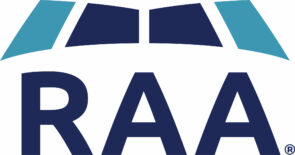WHICH TAX EXTENDERS COULD AFFECT YOU?
- Posted by Kristi Cherry, CPA®
- On March 3, 2020
On December 20, 2019, President Trump signed the new federal budget into law, which contained several key tax extenders (expired or expiring tax provisions).
While the sweeping SECURE Act generated most of late December’s headlines, tax professionals were closely monitoring two affiliated budget bills (H.R. 1158: Consolidated Appropriations Act and H.R. 1865: Further Consolidated Appropriations Act) that also made their way through Congress and onto the President’s desk.
Depending on your personal financial situation, extensions found within these recently implemented legislations could have major tax implications for you.
That’s because these bills not only reinstated some expired extenders, they did so retroactively. This means that these laws won’t only affect your 2019 tax return or next year’s tax return. In certain circumstances, you and your tax professional might be able to go back and adjust your return from 2018 as well.
FOUR KEY TAX EXTENDERS YOU SHOULD KNOW ABOUT
Everyone’s financial situation is different. However, there are four key tax extenders that we’d like to briefly outline here.
1. The adjusted gross income floor for medical and dental expense deductions has been lowered from 10% to 7.5%.
This extender allows you to deduct qualified medical expenses that exceed 7.5% of your adjusted gross income, regardless of your age.
For example, let’s say you incurred $96,000 worth of medical expenses from moving into a continuing care retirement community and your adjusted gross income is $140,000. Under the former law, you could deduct $82,000 ($140,000 times 10% minus $96,000). Under the new law, you can now deduct $85,500 ($140,000 times 7.5% minus $96,000), amounting to $3,500 more in deductions.
2. Above-the-line deduction for higher-education tuition costs and related expenses
Through this extender, you might be able to deduct up to $4,000 a year in higher-education tuition costs and related expenses.
Consider this example. The Lifetime Learning Credit completely phases out at $136,000 of adjusted gross income for a married couple filing jointly. If their adjusted gross income is $145,000, they cannot take any of the credit, but they are able to take advantage of the Tuition and Fees Deduction of up to $2,000. The deduction is $4,000 for adjusted gross income below $130,000 and $2,000 for adjusted gross income between $131,000 and $160,000. If they’re in the 22% tax bracket, this saves them roughly $440 in taxes.
3. Private mortgage insurance premiums are deductible again.
Previously, your mortgage insurance premiums were a non-deductible additional cost you pay each month if your original down payment was less than 20% of the sales price. However, this reimplemented extender will make that additional expense deductible again.
Consider this example. You are married with an adjusted gross income of less than $100,000. You and your spouse recently obtained a $250,000 mortgage and couldn’t put 20% down. Your total private mortgage insurance in 2019 was $500. Through this new extender, this amount is now deductible as interest on Schedule A, Itemized Deductions. Keep in mind, however, that if a married-filing-jointly couple’s income is above $109,999, then they cannot deduct any of the private mortgage insurance.
4. New non-refundable personal tax credit for people who’ve made or who will make qualified energy efficient improvements to their homes.
Let’s say you added new insulation to your home in 2019 that reduces heat loss. Through this new extender, you could qualify for a $500 tax credit. However, limitations do apply, so it’s best to consult with your tax professional about your specific situation.
YOUR 2019 TAX RETURN
As you know, tax season is well underway. If you haven’t filed your 2019 tax return yet, there is still time for you to use RAA Tax Services for all of your tax preparation needs. However, please note that since it is March, we may need to file an extension, but we can help you with that process, if it is needed.
Our tax team wants to help you to take advantage of every tax benefit available to you. If you would like RAA to prepare your 2019 tax return, please request a Tax Return Preparation Consultation with our Tax Services Manager, Kristi Cherry.
Disclaimer: This blog is intended for informational purposes only and should not be construed as individual investment advice. Actual recommendations are provided by RAA following consultation and are custom-tailored to each investor’s unique needs and circumstances. The information contained herein is from sources believed to be accurate and reliable. However, RAA accepts no legal responsibility for any errors or omissions. Investments in stocks, bonds, and mutual funds may increase or decrease in value. Past performance is no guarantee of future results. Any of the charts and graphs included in this blog are not recommendations for the purchase and sale of any security.



0 Comments